 |
||||||||||||
|
VVA Committee Reports, May/June 2017 Agent Orange/Dioxin BY MAYNARD KADERLIK, CHAIR
It appears that Monsanto with its damaging chemicals will be in litigation more often than not. It is very sad that these chemicals are so bad for humans and the environment, and yet their use continues all over America today. When will we ever learn that we are poisoning our world? This very discussion was held at the April committee meeting. How do we stop all of this with all fifty states on board? We need to address this issue very soon or life may be short for our children and grandchildren. We are witnessing chemical problems with our exposure to Agent Orange in the same fashion. I say, “It’s all about money and greed,” and I believe that is true. The Vietnam War followed us home as far as chemicals go. We as a committee will continue working for more presumptives for veterans and their children. I hope and pray that people begin to realize what is happening all around us. Economic Opportunities BY FRANK BARRY, CHAIR
Clark said that it is important to find a way to keep students out of bad schools in the first place and to warn them when schools are out of compliance. His subcommittee is working on the following: the Accountability Act, which just passed the House; legislation that deals with setting aside official time in businesses to conduct collective bargaining; the new GI Bill 3.0 with provisions closing loopholes in the old one; improving the Transition Assistance Program for those transitioning from the military to civilian employment; and more help for small businesses. Scott Dennison, Executive Director of the National Veterans Small Business Coalition, sent a letter informing the committee that the coalition has retained a public relations firm to help “shame the VA into obeying the Supreme Court ruling against the VA in the Kingdomware Technologies case.” This is a service-disabled, veteran-owned business that sued the VA for not giving it preference in bidding for government contracts. “The VA and large corporate interests are marshalling the forces against VETS First to ensure our veteran small businesses are not given first consideration for federal and subcontract procurement opportunities,” he said. That is why we all must remain vigilant to ensure that all veterans are getting what they have been promised and that economic opportunities are there for veterans. Your Economic Opportunities Committee is on guard. PTSD & Substance Abuse BY TOM HALL, Ph.D, CHAIR
PTSD is a serious mental health condition that often needs professional evaluation and treatment. These apps are not intended to replace professional care.
No identifiable data is transferred or transmitted to the VA through the use of the apps. All data entered by you remains your sole property and will not be used by the VA without your express consent. You also acknowledge that it is your sole responsibility to protect and otherwise secure any information captured and stored by the software once it is installed on your device. For statistical purposes, the VA collects anonymous usage data and sends it to a data provider. This feature can be disabled through the app’s settings screen at any time. The PTSD/SA Committee knows that these apps are not going to be for everyone. Research indicates that anything that disrupts the time when it seems darkest gives us a chance to grab hold of our lives and future—and allows us to find meaning in our lives. The PTSD/SA Committee continues to review new therapies, technologies, and activities aimed at having positive impacts on reducing the symptoms of PTSD and substance abuse. Please feel free to contact the PTSD/SA Committee with feedback or ideas to help our brothers and sisters deal with the invisible wounds of war and return all the way home. Public Affairs BY DENNIS HOWLAND, CHAIR
One item shared in our April meeting involved working with area Vietnamese communities. This can have several benefits, perhaps in learning from the stories told by the elders of the Vietnamese community. Perhaps one of them remembers an incident that could help the Veterans Initiative program. With 1,611 still unaccounted for, I feel it is worth our efforts. Should an interesting bit of information fall into your lap, it is important to quickly pass it along to the POW/MIA Affairs Committee, which has experience in determining the value of such information. Staying in contact with state legislators and attending state legislative sessions is another activity that can help statewide programs. We spend a lot of time and energy concentrating on national legislative issues. However, it is also important to stay tuned to state legislation. Some state council officers spend as many as 30 days out of a 45-day legislative session at state capitols. You will also find that supporting veteran-related legislation can provide input and dividends from the younger veterans when it comes to their support. After discussing current resolutions for the Public Affairs Committee from the 2015 National Convention, the committee decided to keep all of them active for the 2017 New Orleans Convention. Finally, there was much discussion about our desire for Vietnam veterans to be in more classrooms to teach students about the war. Other veterans organizations present JROTC awards to cadets, but VVA doesn’t have a national JROTC award. We have received direction to proceed with developing a VVA JROTC medal and ribbon. We will write the program and send it to the BOD for approval. We hope to see a proposal no later than the National Convention in New Orleans. One idea is to make it a three-tier program. For example, each JROTC school would name a JROTC Unit Top Cadet to whom the local Chapter or State Council President would present a medal, ribbon, and certificate. That Top Unit Cadet would then compete with the other top cadets for the state award—presented by the State Council President. All state awardees would then compete for a national award with perhaps a scholarship. I invite and welcome your input. My email is dennishowland@msn.com So please let me know so I can pass your comments along to the committee. BY DOMINICK YEZZO, CHAIR
The veterans run a for-profit business; a restaurant called the ODR. The restaurant is for officers, administrators, and guests of the prison. The veterans incarcerated who run the ODR take pride in their facility. Profits from their successful restaurant are donated to local charities. The menu offers good food at competitive prices. The men who run the ODR are chefs, waiters, dishwashers, purveyors of food, menu planners, and bookkeepers—skills transferable if they make parole. These men were once soldiers. They were awarded Purple Hearts, Bronze Stars, Army Commendations, and even a Silver Star. They committed murder. They committed armed robbery. They sold drugs and were convicted of other high-level felonies. All of them are repeat offenders who first appeared in the court system on lesser charges. Many are serving 25-to-life. Their participation in the management of the restaurant inspires hope in a hopeless place. These veterans are trustees; all seem to enjoy trusted relationships with the prison staff. They are soldiers. These veterans incarcerated suffered from PTSD and TBI upon discharge from the military. Both disorders occur in troops who have been in or near combat or have otherwise witnessed war’s damage. PTSD is emotionally based; TBI is physical. Many of these men could have been saved from prison had there been Veteran Treatment Courts available to them when they returned home. Veteran Treatment Courts recognize PTSD and TBI as symptoms of bad behavior in veterans who are back in the community. The collateral damage they suffer from their duty in war may advance to primal behavior upon return to an unsupportive neighborhood. Here is an example: A young Marine who joined to fight the “bad guys” and get away from a bad neighborhood served three tours of duty in Afghanistan and Iraq, and was honorably discharged in the middle of his second enlistment after serving six years. He was a sergeant. He has two Purple Hearts. He led a squad in a line company that cleared houses door to door of Taliban/ISIS. Once, a sniper shot a kid in his squad in the neck and killed him and shot another kid in the thigh. He fired an RPG into the wall of the house where the sniper was. He killed the snipers. There were also two young children in that house. Their bodies were found partially covered in the rocks and rubble. It was a good military kill, but the memory haunts him. He returned home to the old neighborhood. His girlfriend was living with his best friend. Their child was living with the best friend’s mother. He had no job. He began to drink. He had no friends, no support, no purpose. He had nightmares. He struggled to make peace with himself about the two children who were killed. He was arrested for the first time, drunk and disorderly, five months after his discharge. He resisted arrest. Luckily, he was identified as a veteran and diverted to a Veteran Treatment Court and diagnosed with PTSD and TBI. The judge, a veteran himself, connected the Marine with a VA counselor and a veteran mentor. He returns to court once a week. He is treated for drug and alcohol abuse. The court gave him hope. The court is training the Marine to use resources in place for him. The court is training the Marine to return to the community. His chances for success are good. Had there been no Veteran Treatment Court it is likely that the Marine would have committed more crimes, perhaps a high-level felony. None of the veterans incarcerated at Grafton had a Veterans Treatment Court available to them. Many of them suffer from undiagnosed PTSD and TBI, and many of them—not all, but many of them—could have been saved had we understood the collateral damage of war. Women Veterans BY KATE O’HARE-PALMER, CHAIR
Fewer cadets and midshipmen—both men and women—chose to make sexual harassment complaints this year than last. This needs further research. These statistics appear to be lower than rates reported by civilian colleges and universities in 2015. That is not good news. The civilian rates are being addressed at a national level. The Pentagon recommends that the service academies review their sexual assault and sexual harassment programs and work with experts to use better evidence-based prevention initiatives. The entire report is available online at www.SAPR.mil The VVA National Convention is coming in August. We look forward to seeing many women members there. Many issues will be discussed. I would appreciate email addresses for all women members to be forwarded to the membership office to help us make a complete list for future mailings of pertinent women veteran issues. Thanks to all of you for your letters and comments. |
||||||||||||
|
|
||||||||||||
|
||||||||||||
8719 Colesville Road, Suite 100, Silver Spring. MD 20910 | www.vva.org | contact us |
||||||||||||





















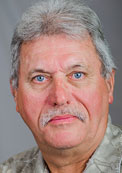 The committee met on April 6 in the national office library. This “pre-meeting” was for anyone who had something to bring before the committee. Anyone may voice his or her concerns and opinions. Our regular meeting was held the following day. We kept to the agenda with only members speaking until the agenda was completed.
The committee met on April 6 in the national office library. This “pre-meeting” was for anyone who had something to bring before the committee. Anyone may voice his or her concerns and opinions. Our regular meeting was held the following day. We kept to the agenda with only members speaking until the agenda was completed.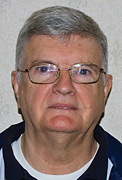 At its April 7 meeting, the Economic Opportunities Committee was honored to have as its guest speaker Jon Clark, the Staff Director of the Subcommittee on Economic Opportunity for the House Committee on Veterans’ Affairs. The first discussion focused on the education of veterans. There are 997,000 using the GI Bill. Legislation in the works will restore eligibility to recipients who have been victims of predatory schools.
At its April 7 meeting, the Economic Opportunities Committee was honored to have as its guest speaker Jon Clark, the Staff Director of the Subcommittee on Economic Opportunity for the House Committee on Veterans’ Affairs. The first discussion focused on the education of veterans. There are 997,000 using the GI Bill. Legislation in the works will restore eligibility to recipients who have been victims of predatory schools. The PTSD/SA Committee is a strong supporter of creating mobile device applications (apps) to provide self-help, education, and support for those managing PTSD, substance abuse, and other self-destructive approaches to coping. The committee encourages you to review the following sites provided by the National Center for PTSD (
The PTSD/SA Committee is a strong supporter of creating mobile device applications (apps) to provide self-help, education, and support for those managing PTSD, substance abuse, and other self-destructive approaches to coping. The committee encourages you to review the following sites provided by the National Center for PTSD (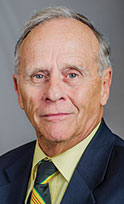 The Public Affairs Committee continues to solicit input on community activities from the state councils and chapters. When you tell us about these activities, we share them. That way, other chapters will see ways to be further involved in their communities, ways that perhaps they hadn’t thought of. It is a great way to share ideas to improve our visibility and help in recruiting and support of VVA programs.
The Public Affairs Committee continues to solicit input on community activities from the state councils and chapters. When you tell us about these activities, we share them. That way, other chapters will see ways to be further involved in their communities, ways that perhaps they hadn’t thought of. It is a great way to share ideas to improve our visibility and help in recruiting and support of VVA programs.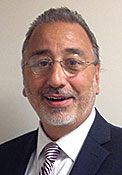 At the Grafton Correctional Facility outside of Cleveland veteran inmates are housed in a separate ward. There are no discipline problems in the Veterans Ward.
At the Grafton Correctional Facility outside of Cleveland veteran inmates are housed in a separate ward. There are no discipline problems in the Veterans Ward.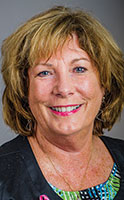 The DoD annual Report on Sexual Harassment and Violence in the Military Service Academies, 2015-2016 was released mid-March. There has been progress in supporting cadets and midshipmen who report sexual assault and sexual harassment. However, there was an increase in unwanted sexual contact in all three academies compared to rates last measured in 2014. This year the Pentagon used a new measure for sexual harassment to obtain better standardized answers to the survey questions.
The DoD annual Report on Sexual Harassment and Violence in the Military Service Academies, 2015-2016 was released mid-March. There has been progress in supporting cadets and midshipmen who report sexual assault and sexual harassment. However, there was an increase in unwanted sexual contact in all three academies compared to rates last measured in 2014. This year the Pentagon used a new measure for sexual harassment to obtain better standardized answers to the survey questions.